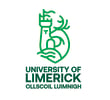Opinion: when we talk about Irish English, we sometimes forget the little things that do so much to characterise the variety of the language
When I teach undergraduate linguistics courses on language and society in Ireland, and Irish English particularly, we brainstorm what we think about when we think about Irish English as a variety. Each year, the contributions connect with the lexicon of Irish English, its grammatical features and their perceived connection to similar words and structures in the Irish language. These elements range from words like banjaxed, described as ‘Anglo-Irish’ (controversial) slang in the Oxford English Dictionary, and the possible connection with the Irish language of the word craic (it's complicated).
Other features connected to the lexis and grammar of Irish English that come up are the various you-plural forms in everyday use, such as youse, yiz and particularly ye; the use of words like pure and fierce to intensify (pure stupid; fierce warm); a distinctive use of reflexive pronouns, How’s herself? Himself is on the warpath; and Irish words and phrases in everyday circulation, like grámhar, glic or mar dhea, which may or may not have English language equivalents. Even if they do, though, those equivalents often just don’t do the job. Students come up with examples that have been described as ‘signature’ structures in Irish English, such as the ‘after-perfect’ – I’m after spilling Guinness all over myself.
Security guy in Dublin Airport shouting "YOU CAN BRING YOUR WATER TRUE WITCHES" at bewildered American travellers, I love it
— Paul Duane 🏳️⚧️ (@paulduanefilm) September 23, 2022
Perhaps unsurprisingly, accent dominates many class discussions (and discussions of class, as it happens). The sheer range of accents in Ireland come up, as do some general characteristics of Irish English pronunciation such as its rhoticity (the pronunciation of 'r': contrast with how a British monarch might say car with the Irish English version), and the addition of sounds that lead to words like film being pronounced fillum (or epenthesis). There is substantial academic literature on Irish English pronunciation, and the related, though distinct, phenomenon of accent.
Understanding the nature of what is meant by accent (and what is not) is incredibly important. For all the affectionate praise of the accents we like, there is a mirror phenomenon of discrimination based on accent, which has implications, as noted by my colleague Caroline Murphy, in the sphere of employment for example.
We need your consent to load this rte-player contentWe use rte-player to manage extra content that can set cookies on your device and collect data about your activity. Please review their details and accept them to load the content.Manage Preferences
From RTÉ Archives, a 1972 espisode of Hall's Pictorial Weekly traces the history of the Cork accent
In the public sphere, and especially broadcast and social media, accent is one of the most commented on aspects of Irish English. In recent months, there has been some spirited discussion of The Rings of Power with relation to the accents of the Harfoots, a community of proto-hobbits, depicted (at least initially) as child-like, primitive and ignorant. The pseudo-Irish accents, dialogue, set design and costumes highlight the very human propensity to associate characteristics like accent with a person's roots, social background and level of education, amongst other things. At its most benign, this is a convenient short-hand for authors and film-makers.
Of course, the Harfoot Irish accent is a fictionalised version of an Irish accent which cannot be realistically linked to a region of Ireland so much as to a Hollywood version of what an Irish accent sounds like. But the plethora of articles that respond to its implications raise the sort of questions that drives research in many of the linguistic disciplines implicated in describing 'Irish English' (or any other variety of a language).
We need your consent to load this rte-player contentWe use rte-player to manage extra content that can set cookies on your device and collect data about your activity. Please review their details and accept them to load the content.Manage Preferences
From RTÉ Brainstorm, can you accent affect your job prospects?
There are other, less easily defined, aspects of language use in Ireland that people readily perceive. These connect to a key disciplinary area, pragmatics, which I and many of my colleagues in Ireland and internationally research. This allows for the study of social nuances, such as the expectation that the form response is 'grand' when someone asks how you are. In other words, you understand the question ‘how are you?’ as a greeting and not as a request for information on your mental, physical or emotional state.
Irish and German people offering things pic.twitter.com/AoPgWJpK6L
— Killpeople Sundermann (@killersundymann) October 7, 2021
The different ways in which specific functions of language like offers, requests, compliments and thanks, and language use more generally vary across regional, national and social contexts, especially in varieties of the same language is a fascinating area of research. It can help us understand how paying for a meal at the end of a first date can be interactionally problematic, or explorations how and why people make requests in direct and often indirect ways that encode ways of doing politeness in Ireland (you wouldn't ever close the door).
Using electronic databases, or corpora, of spoken Irish English, we are able to profile some of the distinctive uses of those small words that we are all aware we use in abundance, and we are able to test those theories, by looking at specialised understandings of items such as grand.
Fascinated with the response to the idea of a gap cap of Latvian Prime Minister Krišjānis Kariņš pic.twitter.com/vG0TgqqGiZ
— Naomi O'Leary (@NaomiOhReally) October 7, 2022
We can explore the high frequency and multiple functions of items such as now, shur (as in shur look), there, or like, amongst others. For me, these ostensibly 'small' words, which defy or transcend dictionary meanings, and capable of fulfilling multiple functions all at the same time, are arguably the quintessential features of Irish English.
Findings on the multiple functions of now reveal distinctive uses that explain its observed frequency in Irish English. It is temporal (used to refer to time), of course, but also to soften or amplify orders and criticisms (often simultaneously). Consider careful now and don’t be frightening her now. More recent work with colleagues looking at the use of there in Irish English identifies its tendency to perform functions beyond those regularly observed: we went to Jersey for a week – it’s really nice there. This contrasts with uses such as just send it on there now to myself. All Englishes use these small words, but it is the ways in which they are used that vary.
"I just sent it to you there." "I just did that for you there." "Will you do that for me there?" Adding the word there in when it's not needed is defo an Irish thing.
— C I 👻 R 👻 (@Ciarabelles) December 10, 2020
In truth, most of us are astute language observers. Given time and space, all of us would be undoubtedly capable of coming up with apt exemplars of what generations of Irish English scholars have spent their careers chronicling.
Just as most public discussion is dominated by issues of accent, Irish English scholarship was dominated up to the late 1990s and early 2000s with a number of issues. These included a focus on describing the sounds, words, and grammar of Irish English; questions of geographical distribution; the nature of the influences that shaped Irish English, such as the preservation of features of earlier forms of English (which can explain the use of ye), contact with the Irish language (leading to the previously mentioned 'after-perfect'), and the impact on our lexicon of contact with languages other than Irish and English over the centuries.
We need your consent to load this comcast-player contentWe use comcast-player to manage extra content that can set cookies on your device and collect data about your activity. Please review their details and accept them to load the content.Manage Preferences
From RTÉ Brainstorm, 5 great Irish words you may not have heard before - and what they mean
All of these areas continue to grow and develop, in tandem with new perspectives on the variety, such the pragmatic perspective. Irish English researchers across the world are still engaged in exploring what gives our variety of English its ‘Irish’ flavour.
The views expressed here are those of the author and do not represent or reflect the views of RTÉ


